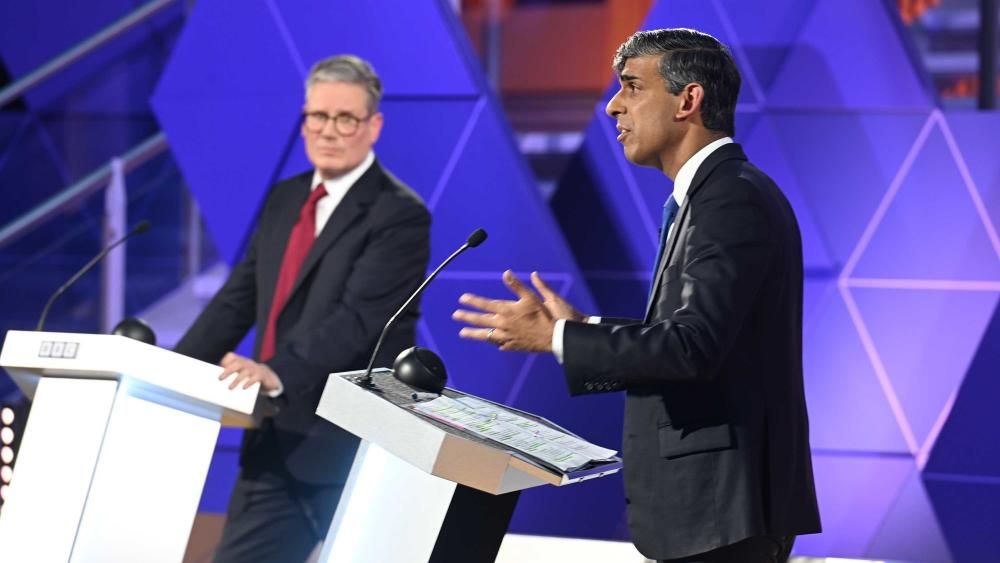
At the start of the election, the Tories said Rishi Sunak wanted to debate Keir Starmer every week for all six weeks. It was a daft proposal that was never going to be accepted, and at time it felt like a clumsy ploy to make Starmer looked scared when he said no. After tonight, you start to wonder whether there were people in CCHQ who genuinely felt that, with a campaign entirely focused on debates, Sunak might actually have turned things around a bit.
That is because, when the history of Labour’s election-winning campaign gets written up, the two head-to-head debates will stand out as Sunak’s best moments. Almost nothing else has gone right for him. But in the first debate he used a (fairly spurious) tax claim to keep Starmer on the defensive for the whole encounter, and tonight he was just as persistent and unrelenting. In some of the policy areas, like small boats and welfare, he was clearly winning the argument on points. And in terms of landing his message, he was probably more successful than Starmer too – even though, with the constant references to “surrender”, his message has become more alarmist and hysterical than when the election started.
And while technically the YouGov snap poll is a draw, the YouGov sample is weighted (not like the studio audience, which being 50/50 Labour/Tory, was in reality disproportionately Tory) and so if Sunak is drawing neck-and-neck with Starmer, in relative terms he is doing well. Debate snap polls often just reflect how the public feel about leaders generally, and on all those normal measures Sunak and his party are miles behind. (See 7.25pm.)
There are two caveats. While Sunak may have done well in terms of scoring debating points, he sounded increasingly like the sort of oddball that you would least want to be standing next to at a party. When he seemed nervous, or was facing challenge, his speaking rate starting speeding out and he began to get shouty and a bit monomaniac. Even if he had a point, it was not endearing.
And the other caveat, of course, is that it is too late for any of this to make any difference – which may be why there was a thread of desperation running through the Sunak performance.
If Sunak won on policy, Starmer won, very easily, on demeanour. He was more effective than he was in the first debate at pushing back at Sunak’s propagandist claims, and he delivered what was probably the best put-down of the night (the one about listening to people – see 8.34pm.) He was not afraid to accuse Sunak of lying, but he managed to come over as less petty than his opponent, and more authoritative and likable.
Sunak may have won in that he outperformed expectations. But Starmer presented as the next prime minister, and all he needed was a draw anyway; in that sense it was a win for him too.






